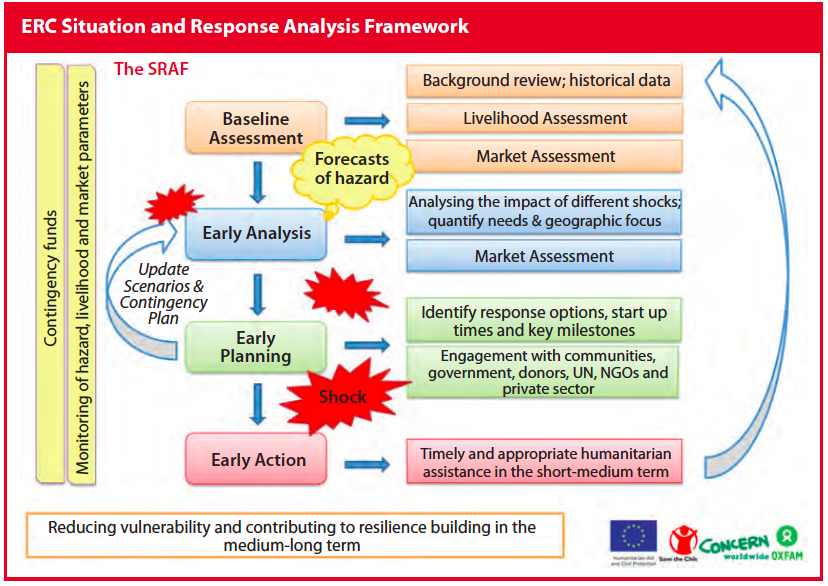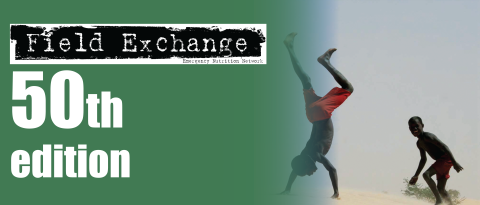Launch of Situation and Response Analysis Framework
Oxfam GB, Save the Children UK and Concern Worldwide have recently launched a Situation and Response Analysis Framework (SRAF) with component tools. The SRAF was developed as part of an ECHO-ERC (Enhanced Response Capacity) project1 to improve timely, relevant response to slow-onset or predictable crises at scale.
The SRAF framework uses livelihood and market analysis and relevant forecast information to predict the impact of a crisis on affected populations before a crisis happens. The SRAF uses contingency planning as a vehicle for improved response analysis, using scenarios and modelling to develop a needs-based rationale for early preparation and response. This can help communities, governments, non-governmental organisations (NGOs) and donors ensure that both funding and programmes are in place when they are needed. Using the SRAF approach can allow more timely and appropriate responses in slow-onset food security crises, broaden response options and support the design of programmes that protect livelihoods and build food security and resilience in vulnerable populations.
The SRAF website provides guidance and tools for the SRAF and works through the response analysis process. The website also houses resources on the tools used for conducting baseline analysis - the Household Economy Approach (HEA) and Pre-Crisis Market Mapping and Analysis (PCMMA) - as well as case studies, news and events relevant to the project.

Access the SRAF at: www.sraf-guidelines.org. If you have any questions, comments or would like any further information, please contact Carol Brady, email: cbrady@oxfam.org.uk or Chiara Trincia C.Trincia@savethechildren.org.uk
1'Reinforcing Institutional Capacity For Timely Food Security Emergency Response To Slow Onset Crises At Scale'


